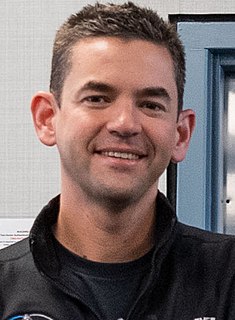A Quote by Buzz Aldrin
Long-term, I see robotics prevailing on the moon. . . . The most important decision we'll have to make about space travel is whether to commit to a permanent human presence on Mars. Without it, we'll never be a true space-faring people.
Related Quotes
Astronauts will remain the explorers, the pioneers-the first to go back to moon and on to Mars. But I think it's really important to make space space available to as many people as we can. It's going to be a while before we can launch people for less than $20 million a ticket. But that day is coming.
In my mind, public space travel will precede efforts toward exploration -- be it returning to the moon, going to Mars, visiting asteroids, or whatever seems appropriate. We've got millions and millions of people who want to go into space, who are willing to pay. When you figure in the payload potential of customers, everything changes.
The question to ask is whether the risk of traveling to space is worth the benefit. The answer is an unequivocal yes, but not only for the reasons that are usually touted by the space community: the need to explore, the scientific return, and the possibility of commercial profit. The most compelling reason, a very long-term one, is the necessity of using space to protect Earth and guarantee the survival of humanity.





























